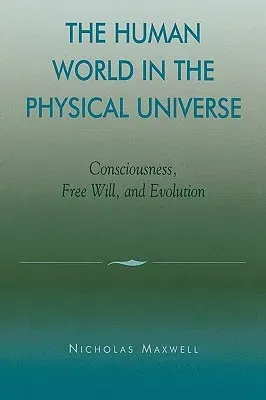Nicholas Maxwell
(Author)The Human World in the Physical Universe: Consciousness, Free Will, and EvolutionHardcover, 24 September 2001

Qty
1
Turbo
Ships in 2 - 3 days
In Stock
Free Delivery
Cash on Delivery
15 Days
Free Returns
Secure Checkout

Part of Series
Philosophy and the Global Context
Part of Series
Philosophy and the Global Context (Hardcover)
Print Length
352 pages
Language
English
Publisher
Rowman & Littlefield Publishers
Date Published
24 Sep 2001
ISBN-10
0742512266
ISBN-13
9780742512269
Description
Product Details
Author:
Book Format:
Hardcover
Country of Origin:
US
Date Published:
24 September 2001
Dimensions:
23.57 x
15.49 x
2.31 cm
ISBN-10:
0742512266
ISBN-13:
9780742512269
Language:
English
Location:
Lanham, MD
Pages:
352
Publisher:
Weight:
557.92 gm